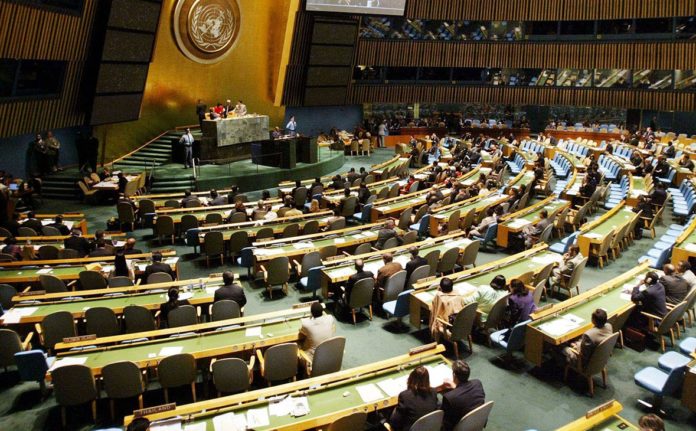The 78th UNGA session adopted a resolution led by China and co-sponsored by over 140 countries, emphasizing human-centered AI development and global cooperation aligned with the UN’s 2030 Agenda. The resolution, warmly received by member states, including a last-minute endorsement by the US, marks a significant milestone in fostering equitable AI capabilities worldwide.
The 78th session (1st July 2024) of the United Nations General Assembly (UNGA) adopted a resolution to strengthen international cooperation in AI capacity building, proposed by China and co-sponsored by over 140 countries including the U.S. It emphasizes a human-centered approach to AI, aiming to benefit humanity and promote fair global AI governance, especially supporting developing countries.
Titled “Enhancing International Cooperation on Capacity-building of Artificial Intelligence,” the resolution advocates for an open, fair, and non-discriminatory business environment and supports the UN’s central role in international cooperation. Aligned also with the UN’s 2030 Agenda for Sustainable Development, it seeks inclusive and sustainable AI development.
China’s UN representative, Fu Cong, highlighted AI’s profound economic and social impact and the widening global digital divide. He stressed how the resolution proposes practical measures to bridge this divide and promote equitable AI development and governance.
Regarding the role of the U.S. in supporting this initiative, Fu stated, “We’re very appreciative of the positive role that the US has played in this whole process. China is ready to work with the US on the issue of AI. So, we look forward to intensifying our cooperation with the US and, for that matter, with all countries in the world on this issue.”
Fu had presented the draft resolution to the General Assembly on behalf of Algeria, Brazil, Cuba, Egypt, Ethiopia, Indonesia, Iran, Iraq, Kazakhstan, Laos, Pakistan, Russia, Saudi Arabia, Sierra Leone, Singapore, Uganda, the United Arab Emirates and Zambia.
He emphasized that many UN member states anticipate strengthening international cooperation on AI capacity building and sharing AI knowledge and achievements. China aims to actively promote the resolution’s implementation, adhering to development priorities, human-centered principles, equality, mutual benefit, and innovation, he said.
“The resolution reflects the extensive consensus among countries on enhancing AI capacity-building and speaks volumes about the political will of countries on enhancing capacity-building and bridging the AI divide through solidarity and cooperation,” said Mao Ning, a spokesperson for the Chinese Foreign Ministry.
Furthermore, Mao said the resolution stresses the importance of increasing the representation and say of developing countries in global AI governance. She welcomed relevant parties to exchange insights for shared benefit, to build consensus, and promote the healthy, safe, and orderly development of AI at the 2024 World Artificial Intelligence Conference in Shanghai from July 4-6, which will contribute toward establishing an open, fair and effective governance mechanism.
The resolution may be considered as a major step towards practicing the concept of a community with a shared future for mankind on the UN platform.




